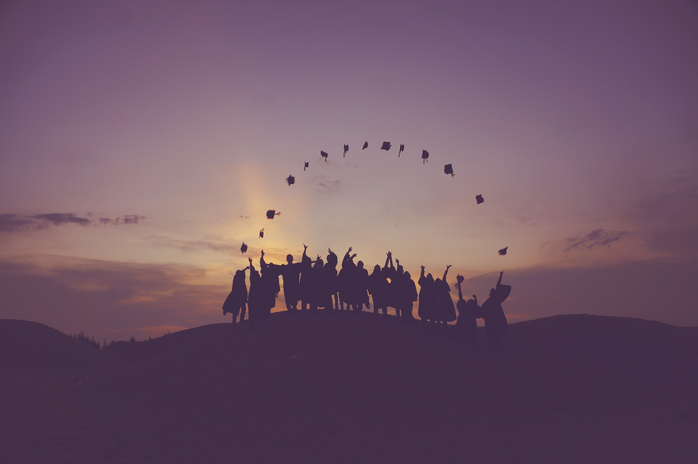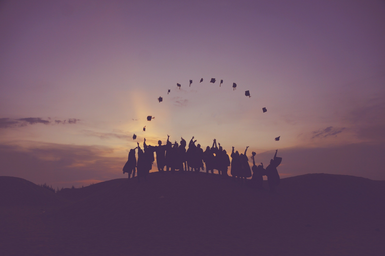Name: Lisa Weidman
Hometown: North Highlands, California
Major: English
Year of Graduation: 1984
Occupation: College professor
Favorites
Color: Turquoise
Animal: Cat
Food: Tree-ripened peaches
Place to hang out: Nick’s Back Room in McMinnville, Oregon
Place to write: My back deck
Genre: Mostly nonfiction lately
Book: Wild by Cheryl Strayed
Movie: O Brother, Where Art Thou?
UC Davis and Beyond
Why did you pursue a major in English?
My parents were avid readers. I enjoyed reading and writing as a kid, and I did well in my English classes in middle school and high school. I liked literature and thought I wanted to become a fiction writer. However, I took drama classes my senior year of high school and got very excited about acting. When I got to UCD, I didn’t declare a major. I took all of the required courses in both English and Drama for two years. At the end of my sophomore year, I knew that English was the better fit for me.
What was your favorite class to take at UCD? Your least favorite?
That’s hard to say. Some of my favorites were my creative writing classes. Another was “Sociology Through Literature.” We read great contemporary books by immigrants to the U.S. and second-generation Americans, such as Maxine Hong-Kingston. I preferred 20th-century literature to older works, so another favorite class was English 146, American Literature 1914-1940, which I remember being called “American Literature Between the Wars.” It was taught by Dr. Carl Zenger, who helped me understand T.S. Eliot’s poem “The Waste Land,” among other works. I really don’t remember a least favorite class, but I foolishly took Genetics 10 for a letter grade during Winter Quarter of my freshman year. I had never even taken a biology class (I somehow got out of taking it in middle school), so I was in way over my head. I eked out a C, which tanked my GPA. I later learned that I could have taken the class pass/fail. I wish I had, but I don’t regret taking the course. I still remember learning about DNA and Gregor Mendel’s discoveries from studying pea plants.
When you were in college, what did you see yourself doing after graduation? Are you there now?
When I was in college, I wanted to become an editor at either a book-publishing house or a magazine. The idea of becoming a professor at some point in the future did cross my mind, though. At the time, I was thinking about being an English professor, not a professor of mass communication, which is what I am now—at Linfield College in Oregon. But the two disciplines are not that far apart. I do a lot of writing, and I teach students to write; it’s just a different kind of writing.
How often do you work, and what do you do in your free time?
I work almost constantly between late August and mid-June. Most weeks I work at least six days a week. Most days I work at least 9 hours. From mid-June to late August my schedule becomes more relaxed. I still have work to do—research and writing for publication, course development, and various administrative tasks—but I have time to stop and smell the roses. I have always loved the summertime, so it is great that I still have summers off from classes. When I am not working, I am catching up on housework and yard work, knitting, tending to my vegetable garden, getting together with friends, going to the beach, enjoying a glass of wine and a grilled meal on my deck, or going to visit family in California. I typically attend one or two academic conferences each summer, which is intellectually invigorating but also lots of fun because I get to go to interesting places (like Finland, Germany, Washington, D.C., and San Francisco) and see old friends from graduate school and previous teaching jobs. One fun thing I make time for in fall, winter and spring is to go to Portland with my husband to see plays. We are season subscribers to Portland Center Stage.
What is your favorite thing about your job? Your least favorite?
My favorite thing about my job is interacting with my students and watching them grow, becoming more competent and more confident with each passing year. My least favorite thing is grading written work. It is hard and mentally exhausting.
If you could go back to when you were in college, what would you change and what would you keep the same?
First off, I would take all of my science courses pass/fail, rather than for a grade! I would also go see my professors during their office hours. I was always afraid to do this. I thought I needed to have a specific (good) question in order to go talk to them. Now, I know that a student really just needs a general topic for discussion, and that is really just to get the conversation started. So much one-on-one teaching occurs in professors’ offices, at least at the small school where I teach. I hope this is also still the case at U.C. Davis.
I would take the Intro to Wine class, which I think was called Vit 10 then. I would start writing for The California Aggie sooner. I think I started writing for The Aggie my junior year. It was a lot of fun and good experience. I would still major in English and probably take most of the same courses. I would meet the same people and make the same friends.
How did UCD prepare you for the “real world,” so to speak?
I remember the mantra of the College of Letters and Science (or perhaps of the whole university) when I was there: “We teach you how to teach yourself.” In other words, the college teaches students how to find answers on their own and encourages them to be life-long learners. I think that was great preparation for life after college, as were the breadth requirements, which exposed me to such subjects as genetics, philosophy, geology and psychology, making me a more sophisticated person.
Is there something you wish someone had told you about life after graduation, or something else you wish you had done?
I wish someone had told me that there was an economic recession happening when I graduated and that the trouble I would have getting a full-time job where I could employ my writing and editing skills was more a reflection of the recession than of what I had to offer. I wish I had continued to pursue journalism until I had a full-time job as a journalist. When I finally landed a job at a magazine (two years after graduation), it was as the advertising manager, not as an editor. If I had held out for a writing or editing job, I probably would have found one eventually, and I think I would have loved it. Instead, my career went in another direction, and I never had a chance to be a magazine or book editor.
What is your advice for someone still in college? A recent graduate?
I have lots of advice for people still in college, depending on their situation. One piece of advice is to spend all four years at the same school if you can. Your bonds with other students, professors and university staff members will grow deeper every year. The longer you know them, the better chance that they will be friends and supporters for the rest of your life. If you transfer to a different school, you have to start over, and everyone will already have friends they made before you got there.
To a recent graduate, I would say if you don’t have a great job lined up after college, don’t let it get you down. Looking for a job is hard, and it is a lonely pursuit. It is easy to become demoralized. To combat this, network like crazy and apply for as many jobs as possible. Send a cover letter and resume to every organization that you would like to work for, whether or not they have an advertised opening. Stay positive about yourself and what you have to offer. Eventually, you will find the right fit.

